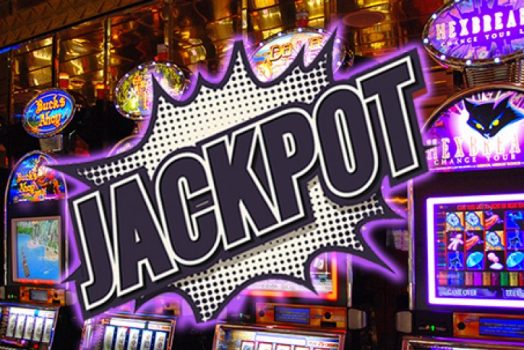Casinos are illegal if they are operating without a license. There are several critical considerations by the European Casino Association (ECA) to have a well-planned strategy in dealing with illegal gambling. The objective of the association is increased collaboration between countries. It will involve support by relevant organizations and institutions in the European Union.
The sector bonds with economy, culture, and society and is thus a sensitive activity. The regulations recognize the societal differences in terms of religion, culture, ethics, and historical backgrounds all over Europe. However, that is not the case for gambling operators who illegally takes their services outside the region. Therefore, it leads to consumer exploitation since the operators exhibit private interests.
The illegal gambling operatives evade paying taxes in addition to involvement in crimes. For instance, there are instances of manipulation and failure to pay the winners. Besides, illegal operations fail to apply the standards and measures in the industry. They should ensure responsible gambling, such as protecting vulnerable persons and minors.
Legal Overview

It is a requirement that all regulatory bodies have to follow the EU stipulated laws. The European Union Court of Justice (CJEU) ensures that there are just restrictions on gambling. It provides guidelines on clarifications of the freedoms provided for in online gaming. Therefore, it is possible to get justice in the national courts.
One of the provisions by the CJEU is that offering gambling services across the borders has a positive impact on the economy and is thus a crucial activity. Besides, there is recognition that the countries in the European Union have the right to protect their citizens. That is, a country can prevent certain gambling services from operating in their countries.
The aim is protection from fraudulent activities and addiction to gambling. Besides, the rights also seek to protect the minors. The countries have to must demonstrate the reason behind taking the restriction measures. Besides, the states have to show consistency in pursuing the objectives.
European Gaming & Betting Association
The organization gears towards streamlining the gambling operators in Europe. It strives to implement a regulated online gambling market by ensuring competitiveness and equality. The association whose offices are in Brussels began its operations in 2007.
Currently, there are several remarkable achievements, though still far from meeting the overall objective. Though it has few members, there are expectations that membership will increase as the issue of regulation amongst the gambling operators grows.
United Kingdom
In the United Kingdom, regulations on gambling are still young compared to other countries in the region. Effective legislations currently seek to regulate the industry better and control unlawful gambling. The law focuses on protecting the minors and vulnerable adults. Gambling is only open to people 18 and above, regardless of whether on land-based or online casinos. However, the Gaming Authority in the country allows players less than 16 years to play lotteries.
Italy
In Italy, the fighting against gambling is more liberal compared to other European countries. When other members of the European Union were bringing on restrictions to the industry in 2006, Italy, on the other hand, was easing the regulations. The country allowed permitted companies to offers gambling services online and in retail locations. An amendment in 2011 allowed licensed customers to offer casino and poker. Therefore, there are several sites in Italy offering to gamble online, i.e. siti stranieri senza AAMS.
France
In France, there are three primary regulators for gambling. Horse racing, online gaming, and betting each has its regulating body. The legalization of poker, horse racing, and betting became effective in 2010 after legislative rulings of 2019. Calls from the European Union prompted the Government of France to introduce the new legal bill.
Spain
The country has made several amendments to the gambling regulations in the previous years. In 2012, a change that allowed operators to obtain licenses took effect in 2012. Currently, betting and playing at any site in Spain is legal, provided it has a license.
Germany
The regulations in Germany are a bit sophisticated, with several revisions for some years. The introduction of a ban in gaming and betting in 2008 left only horse racing, and those states offered online gambling. However, EBGA had to challenge the legislation citing breach of the rules set by the European Union.
The court of justice in Europe noted the monopoly in the gambling industry in Germany in 2010. Furthermore, the court made suggestions that there was a dire need for liberation. The matter went to the point of formation of the Interstate Treaty on Gambling (ISTG). Since 2012, the agreement permits private entities that wish to provide gambling services. All the states in the country adopted the ISTG except Schleswig Holstein. The state made friendlier legislation.
Fight on Illegal Gambling

ECA is a representative of the operators and national organizations of casinos with licenses. Though the ECA’s main aim is to fight illegal gambling, it also takes the sector a notch higher through all-year-round sessions. Some successful undertakings by the association involve joining two new members Montenegro and San Marino. ECA already has a following of over 800 casinos, with employees counting to more than 70,000. According to the chairman, the figures emanate from the 26 European countries as of 2016.
The ECA chairman cites the publishing of a document regarding illegal gambling. It calls for the development of a broad tactic to curb the growing menace by policymakers and the European Commission. The association presents a suggestion that involves the use of reliable tools. For instance, making the consumers know about the whitelisted and blacklisted gambling operatives. Additionally, ECA suggests the use of IP blocking and pay combo.
Other than combating illegal gambling, ECA ensures there is communication amongst the members. The conferences it convenes are crucial in recognition of the employees in addition to holding the annual contest. The championship growing bit by bit from 2007 enables consumers to notice the licensed gambling operatives.
In 2017, the association’s notable efforts included a board meeting to discuss its goals. While still partnering with the institutions in the European Union, discussions are underway with political leaders on illegal gambling.
Conclusion
The historical view of Western Europe shows a region under similar laws. However, each country has its way of dealing with online gambling. There is an expectation of several changes in the fight against illegal gambling.



